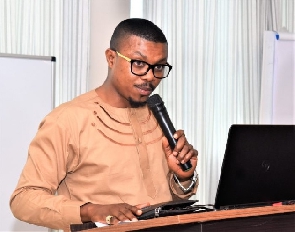 Former Director-General of the NaCCA, Dr. Prince Hamid Armah
Former Director-General of the NaCCA, Dr. Prince Hamid Armah
Former Director-General of the National Council for Curriculum and Assessment (NaCCA), Dr. Prince Hamid Armah, wants education policymakers to be concerned with the seemingly decreasing level of trust in public secondary schools to deliver quality education.
He says that the situation calls for a relook at secondary education in the country and have policies formulated to ensure that its products are fit for the job market.
“When a situation arises where individuals who can afford now want to leave the public school system, what it means is that there is lack of public trust and therefore, any education policymaker must be concerned… I think that it gives us an opportunity to relook at our system and the secondary schools provision,” the Vice-Chairman of Parliament’s Committee on Education said on Citi TV’s Point of View show on Wednesday.
He said that the Education Ministry had already initiated steps to restore confidence in the public education system.
The Member of Parliament for Kwesimintsim explained that the Ministry was doing that by reforming the existing curriculum for schools.
“…this is what the ministry of Education has set itself to be doing. That’s why we started with the reform at the basic schools because the issue is that we are trying to train people fit into the job market and so regardless of the background of the people in the secondary school, we must provide them with equal access to quality education,” he said.
Dr. Armah admitted that the current educational system was laying too much emphasis on writing exams and scoring a qualifying grade rather than training for people to fit well into society.
“As it is now, the system we have appears to prepare people to write exam, lack critical thinking, cannot partake in collaborative work, for which reason there seems to be overemphasis on how children, especially in Secondary Schools, are prepared to write WASSCE and get a qualifying grade for university and I think that that’s an area to look at; to prepare young people to be well rounded and fit in society.”